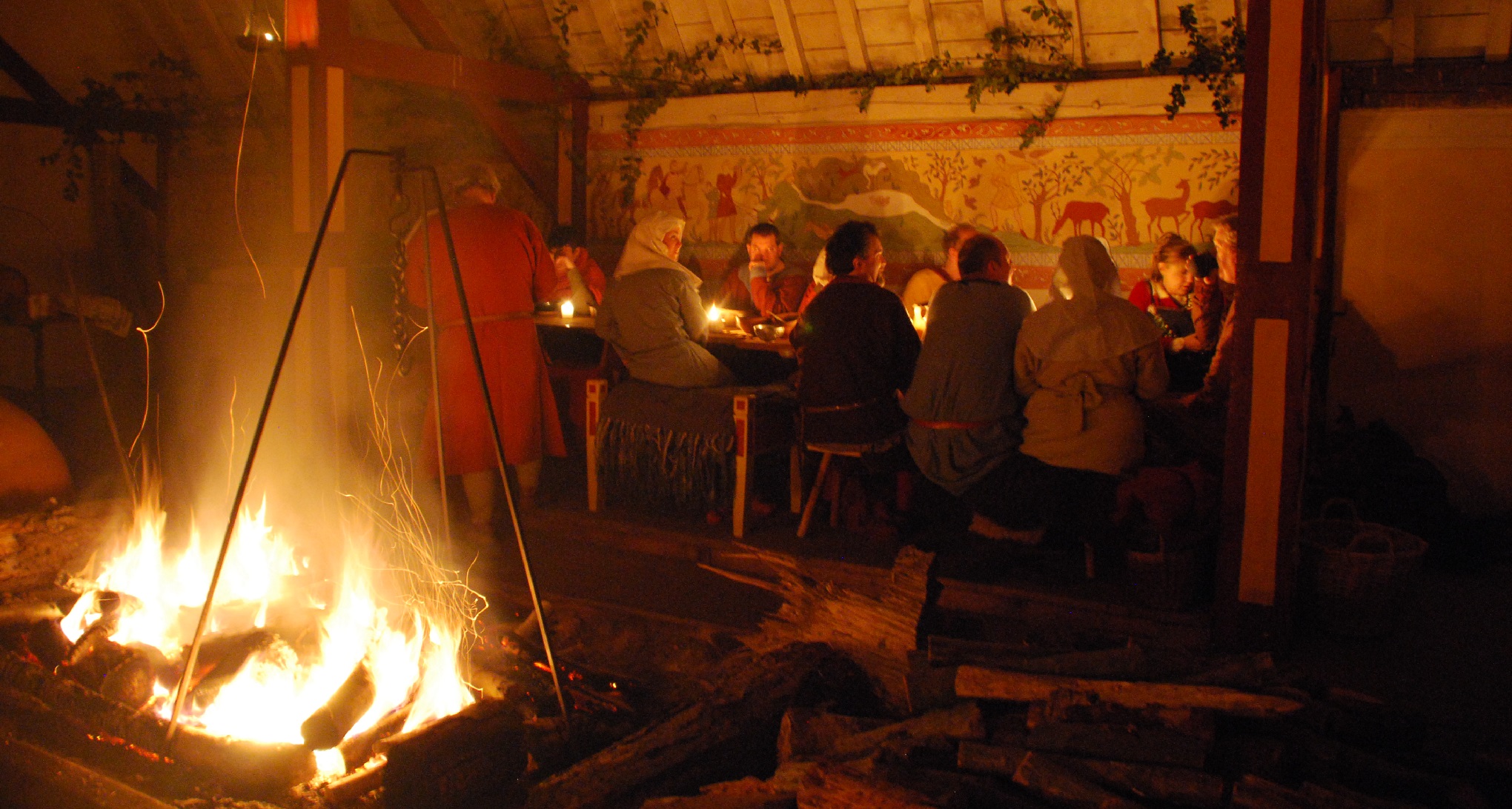
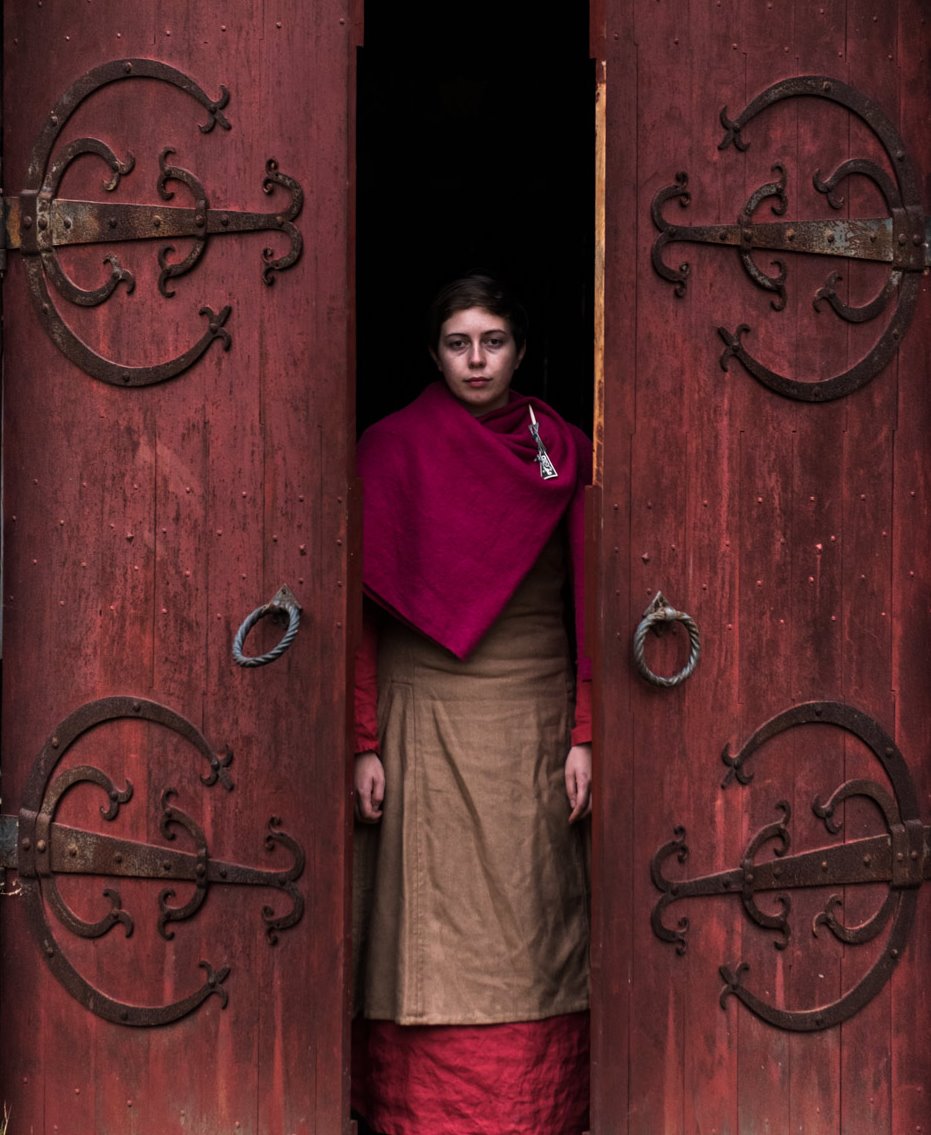
Join Regia Anglorum
Find a local group near you
What is Regia Anglorum?
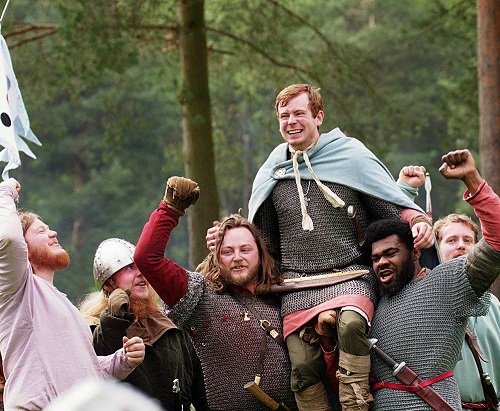
You might say: “That’s a funny name”.
Pronounced with a hard ‘G’, as in GATE, Regia Anglorum is vulgate Latin and means “The Kingdoms of the English”, a term used by early mediaeval chroniclers to refer to the English state, just as we might say “Britain” today. It implies no particular boundary, either geographically or spiritually.
Founded in 1986, Regia Anglorum is a society based in the UK but with a rapidly growing membership overseas. We are a group of people from all walks of life who share a common interest in the period often called the Dark Ages, or the early mediaeval period – roughly from the time of Alfred the Great to Richard the Lionheart – although much of our work aims to recreate a cross-section of British life around the turn of the first millennium. It was a time when Britain was host to many peoples – Anglo-Saxons, Anglo-Danes, Norse, Picts, Cymru, Viking raiders, and even Normans, Frisians and Carolingians from the continent. Regia portrays all of these and more.
We are proud of our strong stance on authentic portrayal and have acquired a considerable academic reputation for accuracy. This we maintain and augment by seeing not only the wood, but the trees as well!
We feel that we do our ancestors no service at all if we portray them as mindlessly violent and their lives as nasty, brutish and short. England was the jewel of Europe; rich in gold and silver and self-sufficient in all aspects of life. Whilst life continued much as it had done for over a thousand years, politically the English state was moving towards a form of constitutional monarchy, only to be brought up short one day in October 1066. But that, as they say, is another story…
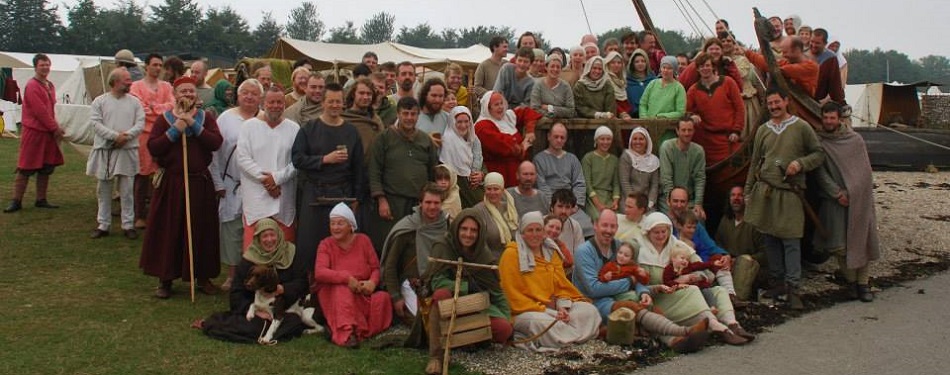
The society’s work deliberately has a strong educational slant and we consider that authenticity is of the highest importance. We prefer to work from found material where possible and are extremely cautious regarding such things as the interpretation of styles depicted in manuscript sources. A surprising number of our members are archaeologists or historians.
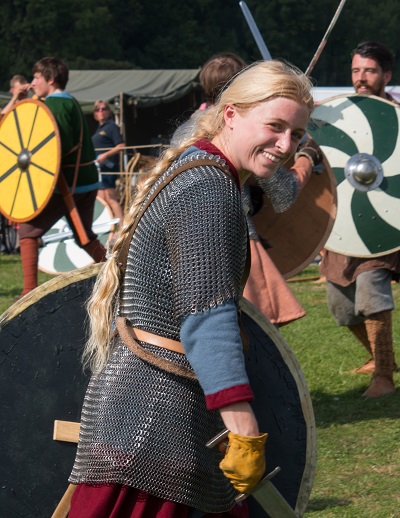
In general, the geographical location decides the “ethnic background” of any Local Group. For example, the Bristol group, Wessex, has an Anglo-Saxon identity, whereas a group from Wales, Gwerin Y Gŵyr, decided to recreate the lives of the native Welsh. However, everyone in Regia is encouraged to develop a secondary character of a different background, so you are by no means restricted. In fact, the society positively encourages character development and some members are known by their “authentic” name.
Limitless opportunities exist for interaction with people from “other lands” who have a quite different experience of life, especially around the Living History Exhibit.
Below you will learn about the activities of the society; whether you just want to live the life, fight the fight or pick up period crafts and skills – or take it even further – and sail Viking ships, help reconstruct Saxon buildings or ride with the nobles. We will also show you the other benefits of joining and show you how to go about joining our society.
Living the life
Did you ever dream?
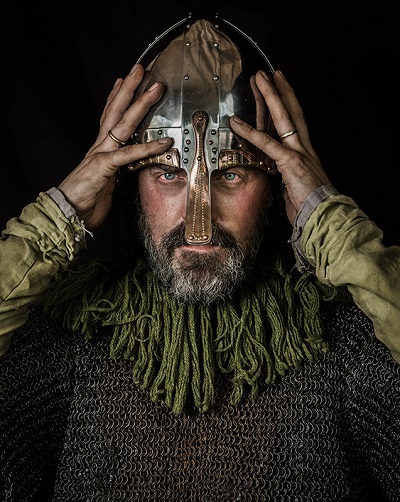
Did you ever day dream of days of yore, and wonder what life would be like in a simpler society. One where family and honour meant something. Perhaps you dreamt of taking arms against the oppressor, living like a Lord; or perhaps you wanted to try you hand as a craftsman in a village. We did!
Fortunately we were able to do something about it. Regia Anglorum is a huge family of like minded people who enjoy this life; whether it’s donning armour and fighting the good (or bad) fight, or the more peaceful existence of everyday folk.
Regia is not just about the violence and bloodshed of combat and the arena presentation. Regia Anglorum lives the history of the period. We have a large Living History Exhibit (LHE) at most shows and here you can live the life. It is an area where the warriors relax; but also where the craftsmen show off their skills. Around the exhibit you will find small wics – groups of members of Regia working together as an extended family much like the villages of 1000 years ago. It is constant bustle: the cooks; the weavers; the wood-turners; the preachers; warriors showing off their latest wargear acquisition. A great place to be and a perfect place to pass our great knowledge to members and visitors alike.
We use tents as an alternative to carrying our own houses around – while these are not 100% authentic they give the feeling of the village and also somewhere for the LHE crew to sleep and relax – and more practicable to building an authentic hovel wherever we go. Many find that living on the LHE is one of the greatest benefits of working on the LHE – the sense of family in most wics is immense
Power does not come from nothing! The lords and ladies you will see around the society have risen through the ranks from a mere slave through to a mighty noble. In doing so you experience the fullness of what the society can offer while giving you ample time to develop your skills and costume; and more importantly to develop a well-rounded character.
Skills and Crafts
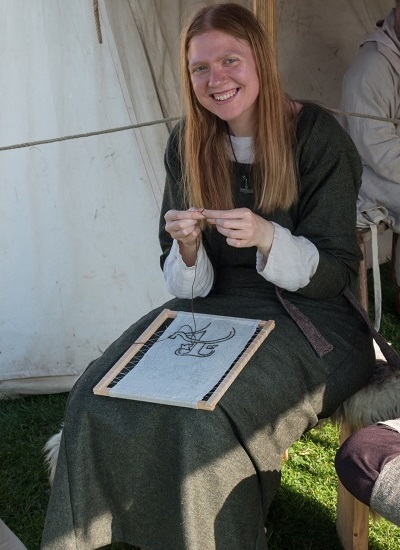
Whether you are an accomplished woodworker or a complete novice klutz then you are welcome on the LHE. Pass on your skills to those who want to learn; or pick up a skill from those who want to teach.
The LHE is the place to show off those skills – around a typical LHE you may see some of the following crafts being displayed:
- Woodwork – pole lathing and carving;
- Textiles – weaving, spinning and embroidery;
- Leatherwork, such as shoemaking;
- Smithying,
- and many more crafts of a bygone age.
You will learn many skills during your membership of Regia and this is one place to show them off. However if that isn’t for you then feel free to come on the LHE and play authentic games; man the armoury; tell war stories; help out in the kitchen, or even just show people round – enjoy the life of the LHE.
Authenticity
Our basic tenet is authenticity. To this end we will not portray any image, support any ideal, or make any item of equipment which we cannot provenance from contemporary sources. It might sound hard, but there are lots of knowledgeable people in the society ready to help you out.
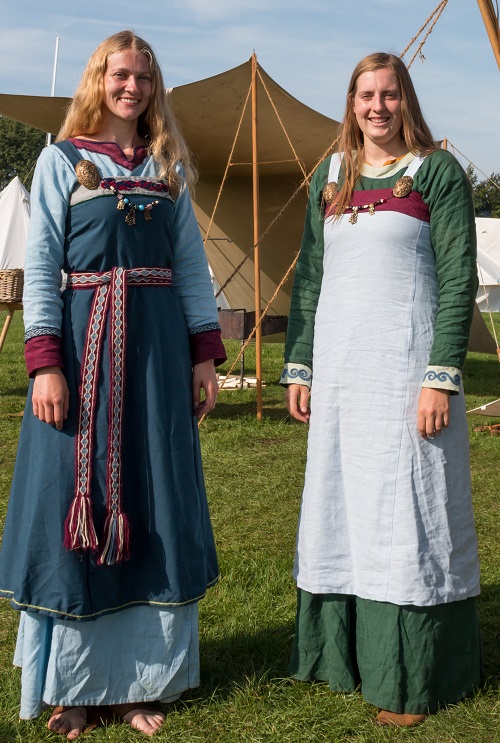
From our experiences, we are certain that no other society from our period of interest takes this matter as seriously. All this authenticity may sound like a bind, but as long as members check with a group “Authenticity Officer” before making or buying kit, it should not be a problem. From the newly joined peasants in their scratchy woollen tunic, to the top-class, mail-clad warrior, we are proud of our ability to get it right. If you already belong to another society, or have joined Regia after belonging to another society, it is recommended that you have your kit checked by your local Authenticity Officer, or you talk to the National Authenticity Officer. This will ensure that you don’t turn up to a show and then get told that can’t use or wear something.
Basic kit and equipment is often available from your Local Group to help members get started, although you may wish to make your own. Your Group Leader, local Authenticity Officer and either your own Training Officer or civilian coordinator will be able to help you with this. If you really don’t want to make your own kit, you may be able to find people who are willing to make it for you at a reasonable price. The cost of basic kit is about £50-60, with about the same again for weaponry if you are a warrior. However, you do not need to buy all of this straight away; it is usually acquired gradually over your first few months of membership.
Obviously if you wish to rise through the ranks you will have to spend more eventually. A fully armoured warrior could cost anything from £400 to more than a thousand to equip, though again this kit is usually built up over many years and it is by no means a requirement of long-term membership.
As most of our shows are datelined, you will have to make sure that the kit you have covers the dateline of the show. The most basic kit of tunic/dress, trousers, shoes, cloak, waist tie, and head covering for women, will cover you for the whole period, so it is only when you start to make or purchase the more expensive and individual items that you will need to worry.
Please get advice before purchasing any cloth, jewellery, braid, leather etc. All colours, designs, and materials must be provenanced. We aim to portray what was “the norm”, rather than the unusual. Nobody likes being told, or having to tell someone, that an item they have spent money on will not be allowed on site. PLEASE CHECK FIRST!
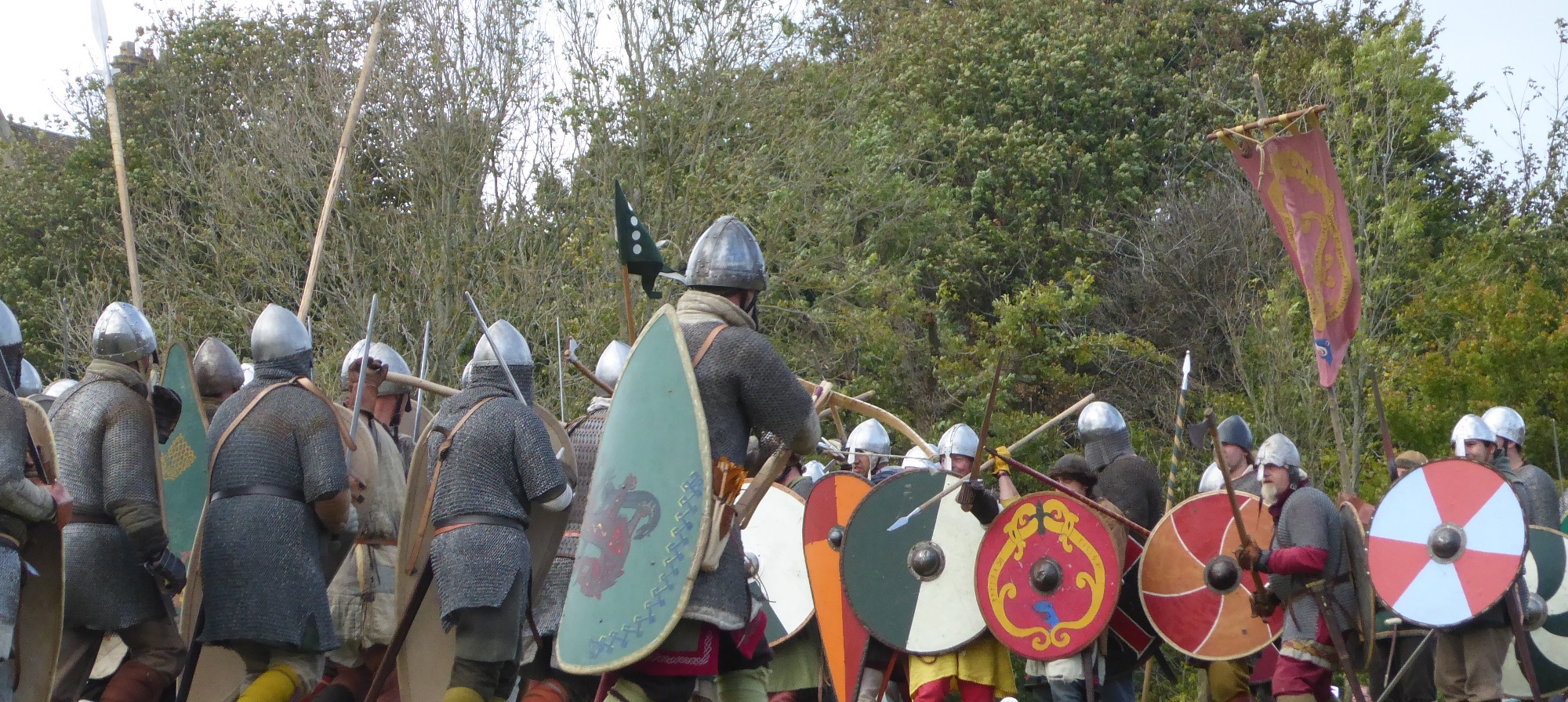
Take up arms
Military re-creations
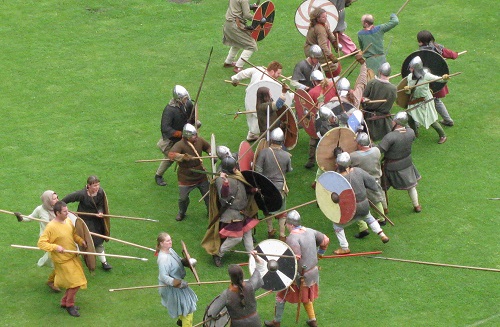
Regia Anglorum also specialises in combat re-enactment, the same stringent rules regarding authenticity being supplemented by on-going weapons training and inspections. Our awareness of safety is high and it is the only matter which takes precedence over authenticity in our work. The structure of public performances is deliberately arranged so as to inform whilst entertaining. Almost all our combats are open-ended and we do very little scripted fighting. This enables our field commanders to use real tactics in real-life situations, adding a tremendous frisson to the life or death feel of our military re-creations.
Taking up weapons
One of the perfectly justifiable concerns expressed by new members is in respect of battlefield safety. Certainly, if one stands back and watches a re-enactment display, it is often hard to see how people get up at the end of the battle and are not all carted off to hospital. And that is how it should seem to the observer. It should look, sound and smell dangerous – but in fact be comparatively safe.
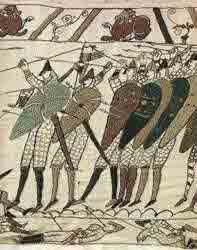
Many members join purely to be part of the fighting arm of the society. Firstly, it needs to be pointed out that realism is not as important as safety on our battlefield.
We do everything reasonably possible to identify and reduce the risk of combat. Regia’s military combat displays are considerable less dangerous than most active team sports.
Activity on the battlefield is controlled by the National Training Officer, his deputies and the War Council. The Master-at-Arms is responsible for regulating and authorising the weapons used for combat. You’ll be trained to use each weapon safely at your local battle practices, national training events and training sessions at major shows. Please talk to your Group Leader, Training Officer and Master-at-Arms and/or Authenticity Officer before making or purchasing any weaponry. They will advise you on what to do. All weaponry is inspected by the National Master-at-Arms and his deputies prior to every day’s combat.
All weapons are steel replicas but have blunt edges and safe points. In particular, swords and large knives (known as seaxes) must be fashioned from tempered, sprung steel to avoid dangerous breakages. Specific requirements are available in the Master-at-Arms’ regulations, if/when you need them.
The society has an established training policy that is under constant scrutiny and is regularly revised where necessary. Our general outline policy has not changed much since our inception in 1986 and revisions and changes have always been of detail and intended to refine rather than entirely change. We are founder members of the National Association of Re-enactment Societies (NAReS) and our rules at least follow the guidance notes that are issued by that body from time to time, but usually exceed them.
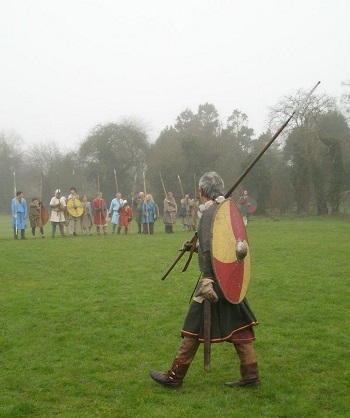
We hold formal training sessions at nearly every society event, during which members are taught and their skills examined. Members under tuition must attend such practices if they are present at an event. A number of rubber stamps are used to mark the membership document of every member as they progress in their training. (For details of this, look at the Master-at-Arms and Battlefield Guidelines, or ask your Group Leader).
All warriors proceed via the training schedule which ensures that they learn how to fight in a safe manner. This does not mean that combat is boring however. From the simple rules that they learn, they can develop their abilities and individual styles. Nearly all fighting is competitive, and any contest is only decided by the skill, and sometimes luck, of the combatants.
The first weapons that a new member learns to use are the spear and knife, and others may be added as the warrior becomes more experienced. Despite our competitiveness, Regia’s safety record is first class. Although the occasional bruise or graze may be suffered, it’s a great deal less hazardous than playing rugby.
In normal, combat life, or death, is decided by the weapon contacting the enemy. That contact is not, in the usual way of things, overly hard and we as members, and as a society, go to considerable lengths to ensure that the environment in which these weapons are used is as safe as it is possible to make it.
Occasionally, with the best will in the world accidents can happen amongst the most highly trained and experienced people. It is impossible to make the kind of combat that we undertake entirely safe and if this is a personal criteria for your becoming a member of our society, then I must regretfully inform you that this hobby is not for you. It is a condition of membership that each person accepts the risk of injury when they decide to join Regia Anglorum.
In our Constitution we say this
In respect of members’ liability, the Society, its officers and/or members cannot be held responsible for any injury, loss or damage occurring to any member or their property. In particular, it is the business of each and every member to investigate, research and understand the specific risks that they may encounter in re-enactment and to decide in cold and sober judgement whether or not they wish to involve themselves in the taking of such risks. Anyone taking part in any of the activities arranged by the Society will be deemed as having taken such a decision by their attendance and participation.
All members are required to avail themselves of training sessions held by the Society or its local groups. Persons failing to do so will take upon themselves a greater responsibility for the care of themselves and others.
Female combatants
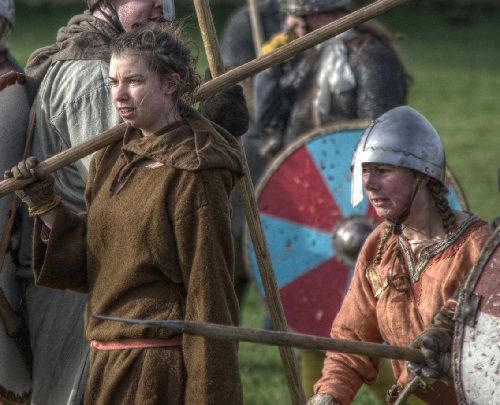
It was to all intents and purposes unknown in Regia’s period of interest for women to take on military responsibilities. But we understand that we are not really Saxons and Vikings, but a twenty-first century club. We accept that all our activities should be open to both men and women and that, where possible, every member should be able to take part in all our activities. Therefore, we make no differentiation between men and women on the battlefield, all we ask is that women should make the effort to look, sound and act as much like men as possible in order to enhance the overall appearance of the battles we re-create.
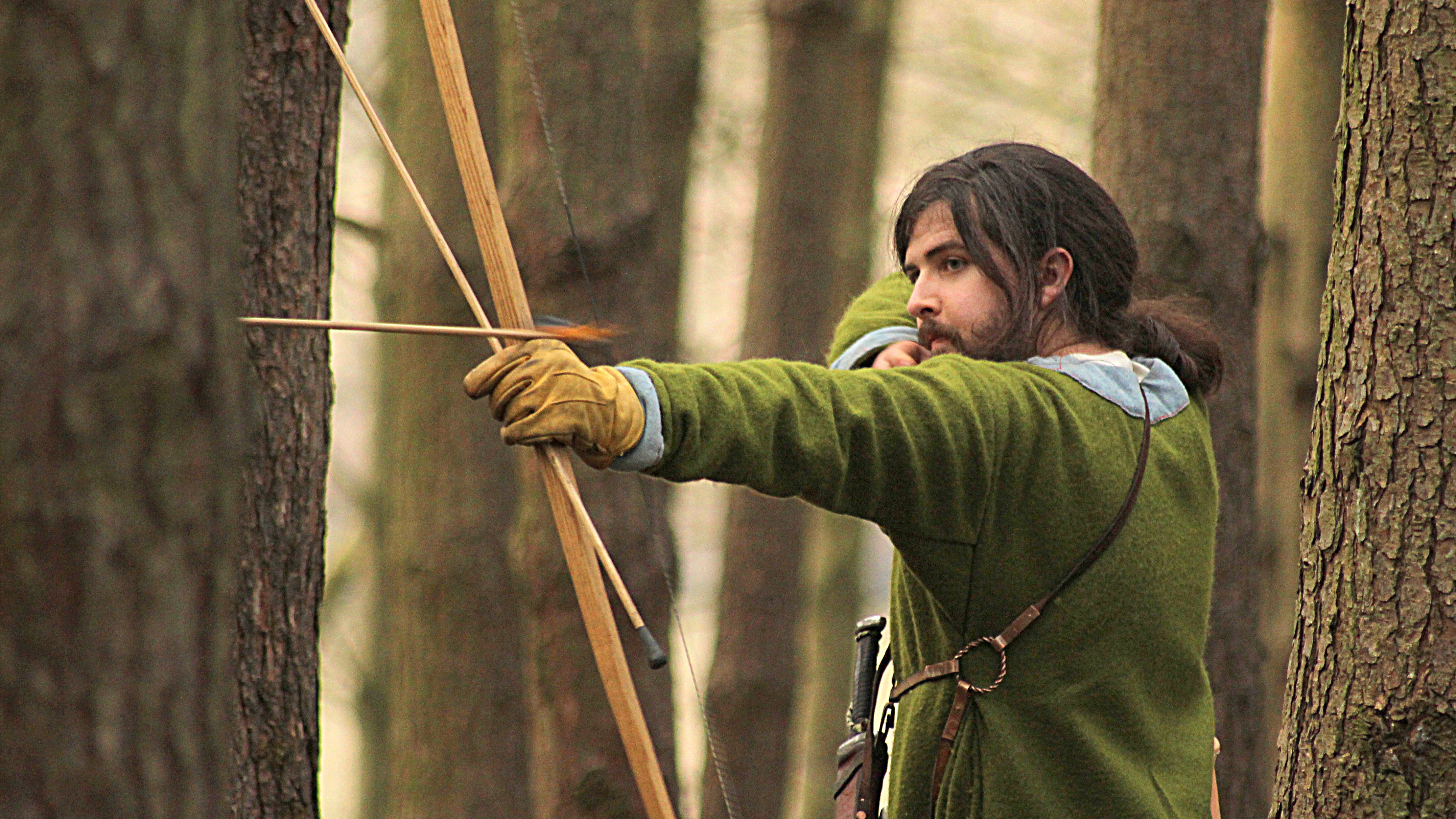
Archery
Although Regia’s period of history might not invoke such romantic images of the archer as do the later mediaeval years, the bow was an important weapon, and an even more important hunting tool.
We therefore include archery within our military displays. It does not form part of the actual battle but is a separate item, using human targets! The arrows used have rubber ends to them, and all targets are armoured and fully trained. Archers wishing to take part in combat displays have to pass a rigorous test set by the Missiles Officer. Some shows include archery competitions where the non-combat archers can show off their skills (including women dressed as women). Bows must be of the right design and poundage before they can be used at a Regia event, and must be inspected first. If you are interested in archery then contact the Missiles Officer.
Pass it on
Public events and other things we do
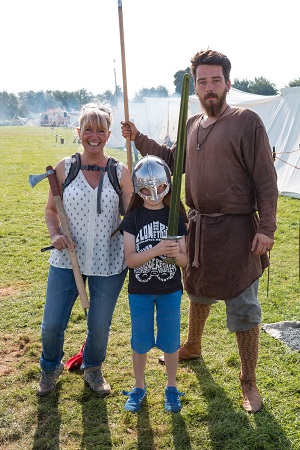
The principal business of the society is to arrange and attend public events. It is by this means that we are able to pass on our knowledge and love of the period, meet each other in interesting places, be seen, and maintain our high public profile. Events may be either arranged as local shows attended by members of the relevant group or major events needing attendance by its members on a national basis.
The society is paid by its clients to organise these events and funds accrued from local events stay at local level. However, Regia Anglorum owns land in Kent on which we are building a permanent site, runs a small navy of five ship replicas and funds a number of on-going projects in a year. All monies earned by the society's members are held in common and managed for the good of all. We have no paid officers, but their expenses are often covered by pre-arrangement.
Aside from public events, the society arranges training events, talks and specialist interest group meetings (cooking, embroidery, shield making, leather working etc) all over the country. We organise a conference every twelve to eighteen months (asuming a pandemic or other disaster doesn’t scupper our plans), where renowned historians and archaeologists come and talk to us about the latest developments in their field. We are a busy active bunch and there is something happening somewhere on most weekends of the year.
At some major events – but not all – there might be assistance with food or other on-site consumables. All shows are datelined in advance and may require members to take the rôle of Saxons, Vikings, Normans etc as required, depending on event content. Assistance with travel by way of vehicle sharing is frequently arranged at group level.
The events calendar
It must be said that we are a well-travelled lot and although the national events organisers do their best to arrange shows all over the UK, shows are rarely going to be close for a majority of the membership on any particular occasion. In our time we have worked for Durham, Gloucester, Worcester, Wareham, Bristol, Stafford, Rochester and many other UK City and Borough Councils. Six years annually at the Largs Vikingr! Centre, English Heritage, The National Trust, The Royal Armouries and The Museum of London. Ecclesiastical clients include Denny Abbey, St. Johns in Wareham, St Andrews in Chippenham, Rochester Cathedral and the Minster and St Olav's in York. The Jorvik Viking Centre in York is our oldest client and we have been their principal sub-contractor for over 30 years of Viking Festivals. Click on the button below to see our current diary.
Shows and events
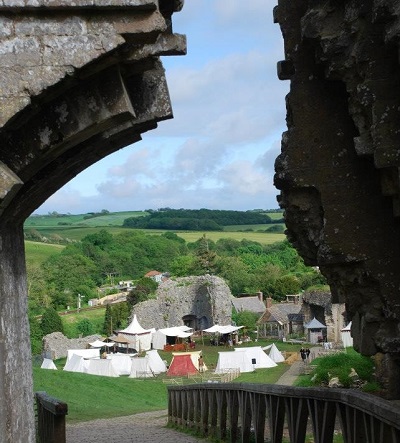
Over the Regia season, which usually lasts from February to September, the society will be employed at a number of public shows staged in castle grounds and other interesting historical sites throughout the length and breadth of the British Isles. We work with various clients, such as Town or City councils or private clients. Regia makes a charge to appear at nearly all public events, however the individual members are not paid. On some rare occasions, the society may pay fuel expenses, or “hardship money”, but the society seldom earns enough to be able to do this.
As well as public events, informal training weekends are held regularly, at which the members have a chance to learn or improve skills, civilian or military, without being under public scrutiny. Authenticity requirements are slightly relaxed at these events and there is rarely a set dateline. Military training at such events can often involve combat games and fighting in woodland, and the civilians have the time to complete projects which they can't always do at a busy show.
The online diary is regularly updated with these events and your Group Leader will be reminded about upcoming events. Please don’t expect your Group Leader to contact you all the time to keep you up to date with what is going on, but you can ask if you are unsure. If your group has “hearth nights”, then attend them as often as possible to keep abreast of what is going on locally.
Working in film and television
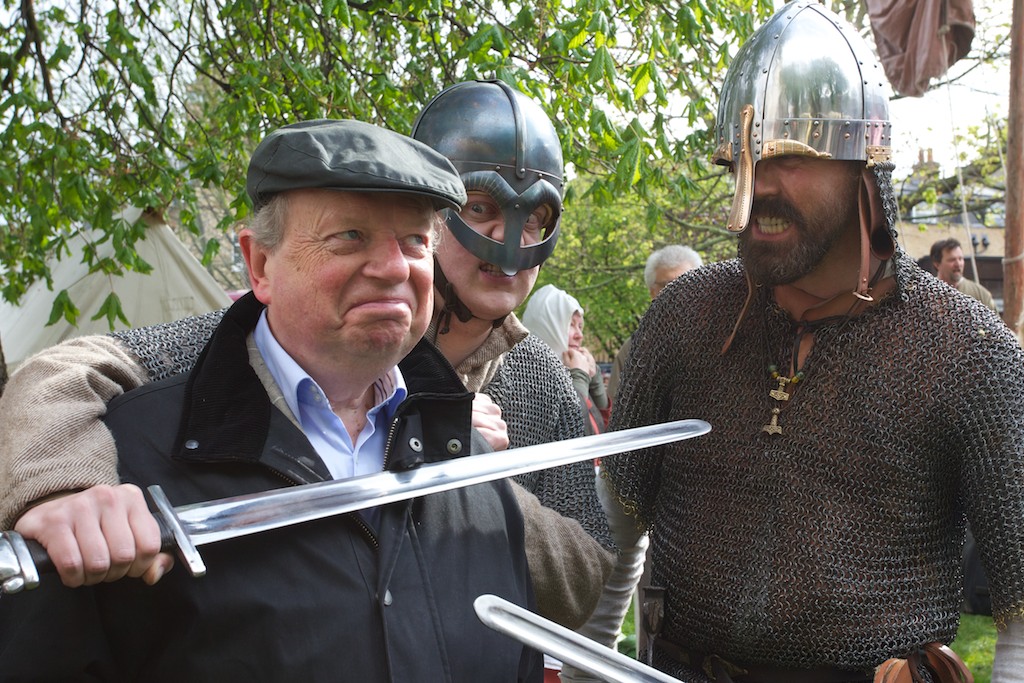
Several times a year, the society gets asked to provide personnel for media work. The great majority of this work is for television, although our members have worked on major feature films such as The Lord of the Rings, Gladiator and The 13th Warrior. To be honest, if you’ve noticed costumed bodies doing things in documentary TV programmes concerning our period of interest at any time in the last fifteen years, the likelihood is that you’ve seen Regia members at work; whether it be atmosphere shots in Simon Schama’s History of Britain, informative cameos in Time Team, or a fishing boat in Game of Thrones. We do not work for nothing and anyone taking part can expect to be paid, treated like a human being and get overnight accommodation and food and drink where necessary.
I’m afraid it isn’t just a question of putting your hand up and saying “yes please”, you’ll have to have suitable kit for the production and we’ll need to have known you for a while, too. That said, if you are keen to be involved, keep an eye out for opportunities and make yourself known when one comes along.
There is, of course, a downside. You must be able to be available at relatively short notice and be able to take time off work/college if necessary. Location work is often cold and damp or hot and dusty, necessarily in draughty castles or in the country far from modern buildings and amenities. There is a lot of standing about and waiting for the crew to set the next shot, then doing the same thing several times as they change the camera angles. But we never have any trouble finding intrepid souls willing to get their faces in the frame!
Museum supply
We also supply replica artifacts for museums and interpretation centres and can produce such things from our own research to the highest guaranteed standards of accuracy.
The Living History Exhibit
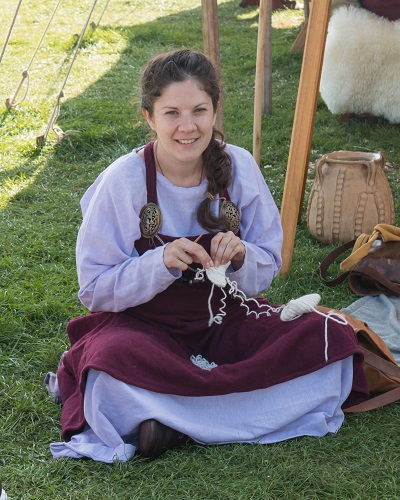
Our civilian projects are many and varied and we can offer our members a wide range of interesting things to be involved in, such as cooking, spinning, dyeing and weaving, smithing, leather and wood-working etc. The “Living History Exhibit” (LHE) comprises a working village of large tents and workshelters (reconstructed from archaeological evidence and manuscript illustrations), which acts as a portable base for our on-site activities. It represents the variety of temporary structures you may have seen at a large cattle market for example a thousand years ago. If you are interested in the civilian side but are a novice to crafts, our “experts” will be only too pleased to pass on their knowledge. If you are already an expert, you will find in the LHE an atmospheric and friendly environment in which to demonstrate your skills.
However, the exhibit is not only manned by craftsmen; you will find children at play, warriors relaxing and showing off their wargear at the armouries, even an active clergy of monks, nuns, priests and bishops caring for the spiritual well-being of their flock.
The LHE operates slightly less formally than the battlefield. It is forever changing and growing and therefore has to be flexible enough to cope with new ideas and sudden bursts of enthusiasm!
If you have no civilian skills but still wish to take part, then you will be very welcome. It won’t be long before you find your niche and settle into a project. You may find yourself researching something that no-one else has yet thought of.
If you belong to a group that has no LHE of its own then contact the National LHE Co-ordinator. You will still be very welcome.
If you have an authentic dog, or other animal that you wish to take on site, then please contact the LHE Co-ordinator who will give you full details about whether or not this will be possible before you take it to a show. Many members often bring pets to shows and this is seldom a problem, but it is always best to double-check.
What is expected of you at a show?
You will need to some basic items before attending a show:
- Basic Kit — A tunic/dress, trousers, shoes – you may be able to borrow these from your group for your first show.
- Camping Gear — You will need somewhere to sleep and something to sleep in.
- Food and Drink — Depending on your group and the location of the show you may need to take food with you.
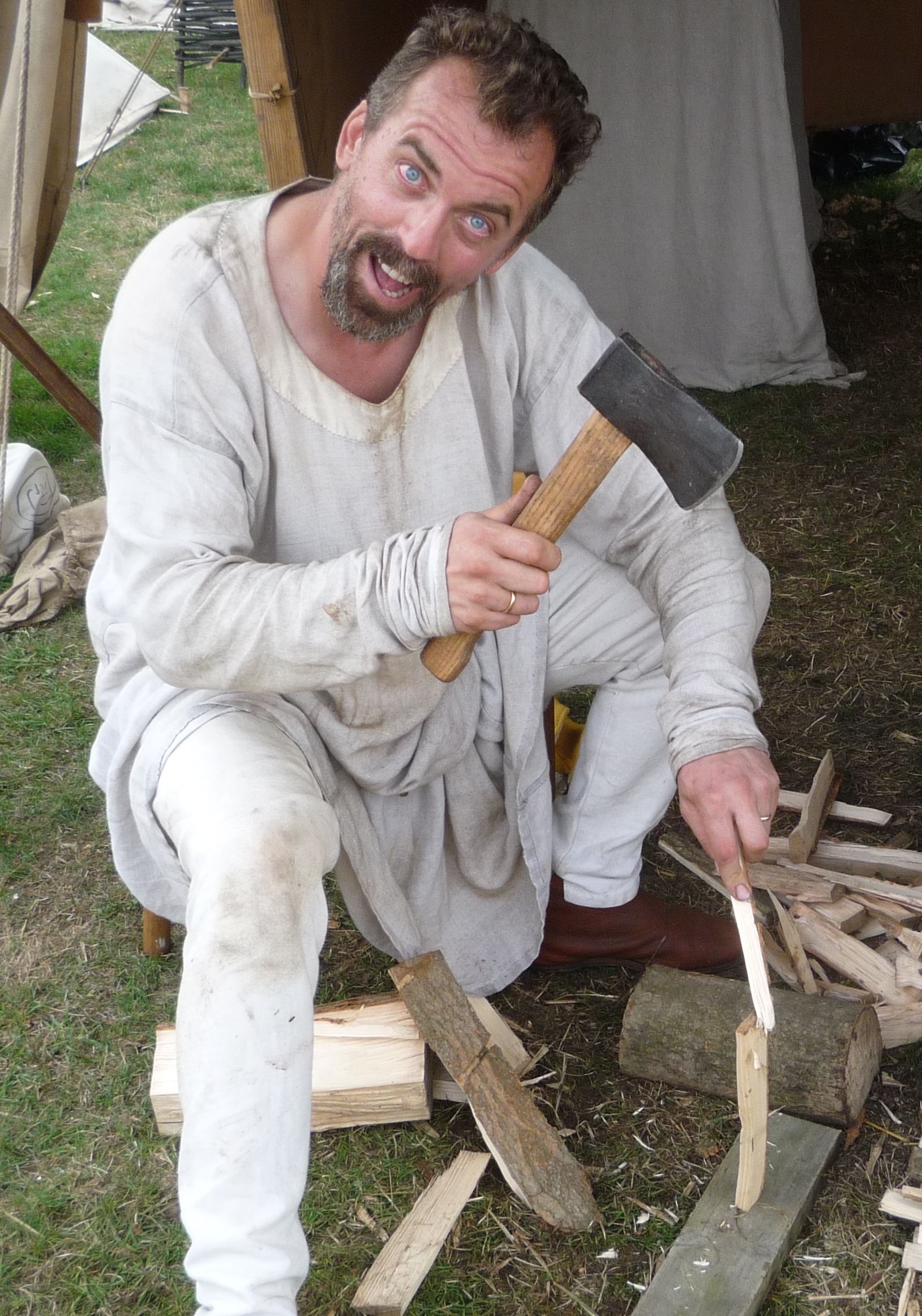
Any equipment you borrow is your responsibility – treat it well and return it clean and undamaged.
When you join you will be provided with a basic clothing guide and a new members handbook. This will expand on the contents of this section and show you what you need to wear and how to go about making it.
Most shows have a similar structure, however some may require a greater input than others, depending on the type of client. The Living History Exhibit is usually open from around 10am to 5pm, or whatever times the client requires within reason.
It is imperative that all 21st century items are removed from sight by opening time. All civilians living on the LHE are expected to be on site for most of the day.
For the warriors, morning training starts around 10:30am. Muster for battle is usually at 2:30pm, with the battle at 3pm. Combat usually continues after the battle in the form of “circles of honour”, “circles of treachery” or similar. Each show is different and the organisers will try and mix it up a bit to keep things interesting, but shows generally fall into that basic setup.
Training is essential for all new members, and this is where you will have the chance to be tested by the Training Officer or his deputies.
A few golden rules:
- Do not carry inauthentic bags, coats etc, do not smoke or wear glasses or sun glasses where the public can see you.
- Do not drink from cans and bottles, or eat ice-creams etc (it is perfectly all right to do this away from the site). Please avoid being photographed by the press with these things.
- Refrain from swearing in front of the public even on the battlefield.
- Warriors should not leave their weapons lying around the LHE. Weapons left on the floor can be broken or stolen, and may trip up a member of the public or an LHE civilian. Wet grass can make weapons rusty and unsuitable for use (only rust-free weapons are allowed on the field). Please use the designated armouries and look after your own property.
- If asked a question by a member of the public, to which you do not know the answer, please do not make one up! There is bound to be a member nearby who will help. You never know who you might be talking to. Archaeologists love coming along to events to see what we do!
- If you are not in kit please do not sit in-between the battlefield ropes or sit around the fire on the LHE. The public do not know that you are a member of Regia and will assume that they can do the same.
Education
As well as major public shows, a number of our members do school visits and demonstrations within Key Stages Two and Three of the National Curriculum. This is a very important part of the work of the society. A typical visit bould be full morning or afternoon session, or involve several day visit. It would include a brief talk, followed by inter-reactive demonstrations using reconstructed artefacts. In fact, for some members of the society, this has become a profession.
Sail, ride and other activities
Maritime matters
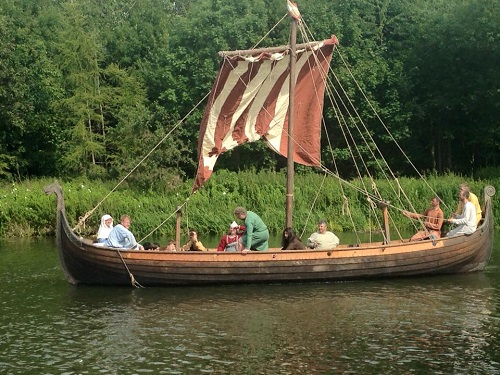
The society owns and operates several full-scale ships, the only society of our kind in the world to do so. One is a good thirty two foot long replica of the Krampmakken Boat, another a twenty foot copy of the Gokstad Faering. Both are capable of being rigged for sail and the Faering is frequently used in this way. We also own three Glass-reinforced plastic (GRP) hulls, each forty-seven feet long. Originally commissioned by the Jorvik Viking Centre as replicas of the Skuldelev Wreck Three, these vessels have now belonged to Regia Anglorum for many years. These too are propelled by oar and sail alone and we keep one in a state in which it can readily be moved from place to place. We frequently use these ships for film and events work and Rutland Water – the largest man-made body of water in England – is a frequent location.
These are sometimes used at shows with a coastal, lake or river setting. They are often used for filmwork too, and have been seen in such productions as Game of Thrones. They give the society’s members the chance to learn how to sail and row a 1000 year-old type of ship, and you never know what they may be required for next, or where!
If you wish to be involved with the ships, or just require more information, then please contact the National Maritime Officer.
Equine matters
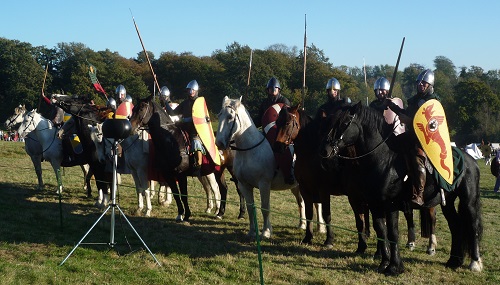
Riding was a skill common to the nobility of Regia’s period – whether just out hunting or hawking; resting on campaign or charging up the ridge of Senlac. The sheer height advantage gained when you are mounted makes the average Saxon Thegn or Norman Knight a commanding presence on the battlefield.
The Bayeux Tapestry is full of images of men on horseback hunting, or riding down the Englisc shield wall. Byrthnoth himself at the Battle of Maldon rode about his men encouraging them before he dismounting and joining them in the shieldwall.
Many of our people can ride, and some own their own horses. We are always looking for experienced riders to add to the team. All tack and equipment is re-created to the same high standards as all our other artifacts, including a period saddle.
The Church
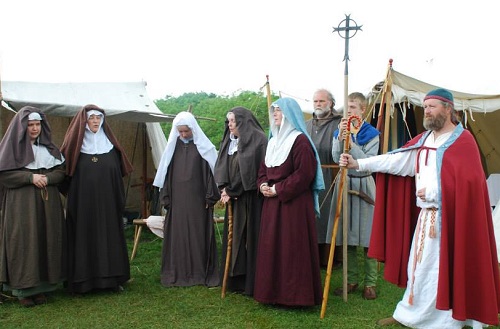
Religion was a major element in everyday life. Most of Europe was Christian by this time, with only a few pagan diehards left in Scandinavia. It is difficult to explain in a few words how important and influential the Church was to the culture and belief of the population as a whole. Much of our evidence for everyday life is taken from the various manuscripts and illustrations originally created by monks and other churchmen. Regia has all sorts of people interested in this aspect of life, and for all sorts of reasons. At events, we have a number of women portraying a group of nuns who sing in Latin. Other people take the rôles of monks or other male clergy. From time to time, we might have a wedding ceremony in a church local to an event and our biggest ecclesiastical adventure yet is a full scale coronation in York Minster!
If you would like to take part, or would just like to know more about what goes on, please contact the Ecclesiastical Officer.
Wychurst – our very own Anglo-Saxon manor
Alone of all re-enactment societies, Regia Anglorum owns a permanent site. Situated about sixty miles from central London and in a patch of secluded woodland near Canterbury in Kent, we are constructing a fortified manor house from the Late Anglo-Saxon period. We have used our site as a filming location on several occasions. Pictured here is the front entrance with the longhall in the distance.
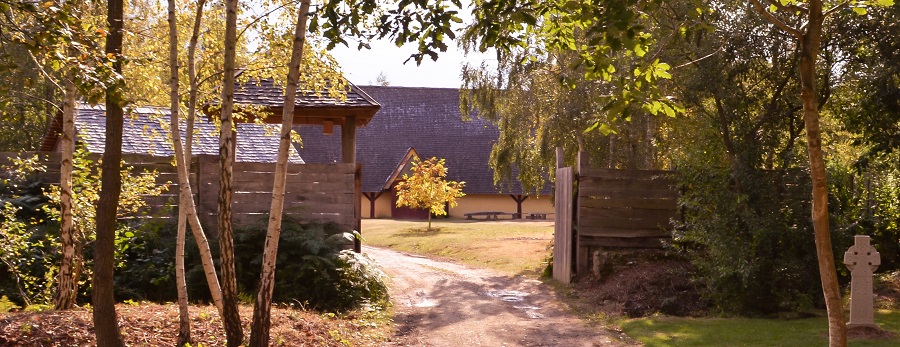
But the main feature is the spectacular Longhall. The only building of its kind in the UK has tremendous presence and mere words cannot honestly do it justice. At the heart of the site, this 20×10×10 metre English Oak building is exactly what one might expect to find in such a vulnerable spot in the Viking Age. It has a protective ditch and palisade, over 200m in length complete with a watchtower and impressive gates.
You may have seen it on television as we have used our site as a filming location on several occasions.
This is an ongoing project and things are always changing there. For the latest, with some up-to-date pictures of the site and the work which has gone into it, feel free to visit our Wychurst pages.
Benefits of membership
Membership means you will:
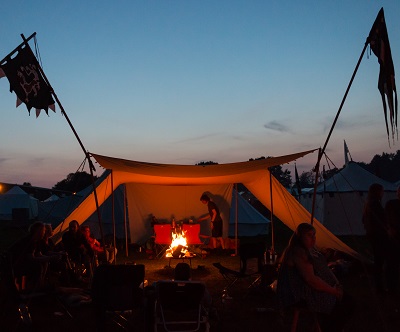
- Be able to attend National and Area shows throughout the UK, and occasionally abroad.
- Be able to work at or on our own permanent site Wychurst.
- Have £5,000,000 public liability cover at all events in the UK.
- Have the possibility of being involved in film and TV work.
- Have the possibility of rowing or sailing our ship replicas.
- Have access to the combined knowledge and experience of our officers and members.
- Have access to a wealth of knowledge on our very active members-only e-Groups and private Facebook groups.
- Be in the company of like-minded people who share a common interest.
Before you join Regia, you may have decided whether you wanted to participate in military or civilian life, or both. You are free to do whatever you choose, and as time goes by you will find more and more to interest you. It may be a cliché, but it is true that you will get out of Regia what you decide to put in.
Although Regia is about the past, there are always plans for the future.
Some dreamt of a permanent site, to recreate a complete image of life as it was; others longed to lead a charge of horses on Senlac Ridge. With hard work and imagination we are making these and many other things possible!
But more importantly, Regia Anglorum is not only about crafts and history and combat, it′s about making friends. It won′t be long before you are sitting around a campfire, telling tall tales of your exploits on the battlefield and maybe hearing a story or two from long ago. Who knows? Maybe at the campfire, looking up from sewing a shoe, or peering across the shield′s rim at an unknown foe, the thought will come to you unbidden – as it does to all of us – “It must have been just like this…”
This is why we have become one of the country′s leading and most well respected Living History Societies.
Membership of Regia Anglorum
Finding a local group
Regia Anglorum is composed of many Local Groups situated through the British Isles, and some overseas. We recruit geographically and have groups scattered the length and breadth of the country from Orkney to the Isle of Thanet in Kent and to Pembroke and beyond.
All members must belong to a Local Group. By joining their local group, members will be able to learn about the society from those nearby.
Each Local Group is situated within an area known as its Land Grant.
Within this Land Grant, a Group may recruit, hold Local shows, battle practices, civilian training days, banquets and training weekends. If a National Show falls within a Group’s Land Grant, then generally that Group will host the show.
How the groups operate
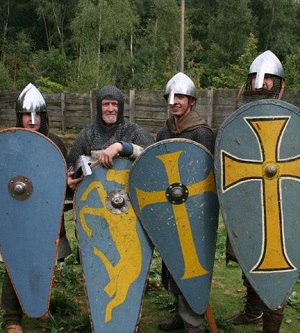
Different Groups have their own individual rank structures. Generally, each new person can expect to start at the bottom, whether civilian or military, and work their way up through the ranks. In other words, don’t expect to join a Norman Group and begin as a knight!
When you are at a show you will probably tend to fight, pitch a tent and eat with members of your own Group, but Regia is a pretty gregarious Society and it won’t be long before you’ve been killed, woken up by, or bought a pint by a member of another Group.
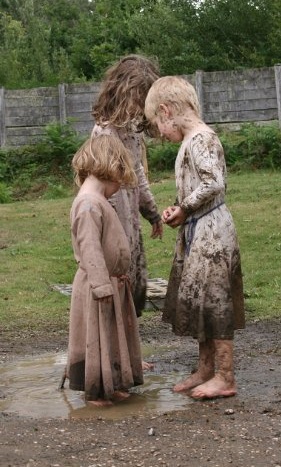
As well as the Group Leaders there are several Officerships in Regia. The Group Leaders, the Officers and the Eolder gather together at least once a year for what is known as the High Witan – the council of Regia Anglorum. The Witan discusses and may vote on proposals made by Group Leaders. The Witan decides who will fill the various Officerships, when they come up for re-election, and may also amend the Constitution, or the Practice and Procedure document of Regia Anglorum. A copy of this document (normally called the Code of Law) and the Officers’ Regulations are available on the members area of this website. Before you join you will be shown the Code of Law; it’s quite a big document – and chunks of it are not particularly relevant to everyday membership of the society – however you will be shown the relevant sections of the document and should read these before signing the membership form.
As well as the High Witan, there are a number of other smaller councils within Regia. These are groups of interested members of the society who assist the various officers in their rôles. They meet when necessary and normally communicate via email; if you wish to become involved in these then feel free to contact the relevant officer; see the members area on this website for more details.
Membership
- To join Regia in your own right you must be at least eighteen. Anyone under 18 must join with one (or both) parents and they will be expected to be in the charge of their parents at events. Children under 16 may join as a free “family” member alongside their parents.
- The minimum age for combatants in Regia is sixteen, but we set stringent conditions which must be followed.
- Regia requires a Capitation Fee of £20 from every adult member. There may be an additional charge on top of this at local group level. Some charge a little more and some a little less. These fees at local level are there to help run the individual groups and cover mailing costs etc.
- There are concessionary rates for junior and un-waged members.
- You will find no downloadable membership form on the site – that can only be obtained from (and submitted to) a Local Group Leader as we insist on meeting people before they become members! We have no “national” members.
- We particularly welcome families with children. Most big events have around twenty children of all ages in costume on the Living History Exhibit.
- We have members in other countries of the world. About 10% of our membership live in North America. If there is not already a group operating in your state then you could always form a new Regia local group along with a few friends.
- Everyone gets their own membership document, a passport-like booklet that carries a photo of the member plus all sorts of details about events they attend, skills they acquire and personal information.
Overseas Membership
We have an international membership with groups in both Canada and the USA. Our members include representatives from many countries, including the Czech Republic, Denmark, South Africa, France and Germany.
What do I do now?
So we haven’t put you off yet? Good! The next bit is quite easy – you can either contact us via the below link or come along to an event, talk to us and we can take it from there.